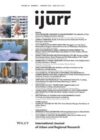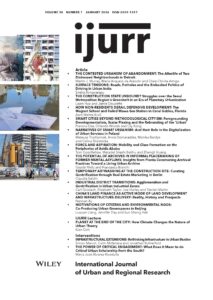Henry George advocated for capturing land value increases for public ends. The active approach of public authorities organizing and financing land development can help capture higher land value increases, as Hartman and Spit indicate. However, this approach hardly happens in developing countries, where the coalition of private developers and local officials and weak state capacity perpetuate a passive approach: private developers mainly finance and organize land development and capture land value increases. In terms of ‘land finance’ practice, China became an outlier in developing countries following the active approach. While China’s land finance is iconic in its rapid urbanization, few studies examine its formation. In this study I analyse how China’s land development was transformed from the passive to its current active mode. I argue that the Chinese central government’s policymaking dismantled the self-reinforcement of the passive approach and created new rules that are vital for the transformation to the active mode. Given China’s new economic and sociodemographic situation, I propose that the Chinese central government continue to support the Georgist value capture idea and design new frameworks to capture value increases in property reselling and redevelopment. In this article I also suggest that the Chinese government appropriate more land revenue for social spending such as senior care and child benefits.
Details
Written by:
Nannan Xu
Digital Object Identifier (DOI)
https://doi.org/10.1111/1468-2427.70024
About DOI

